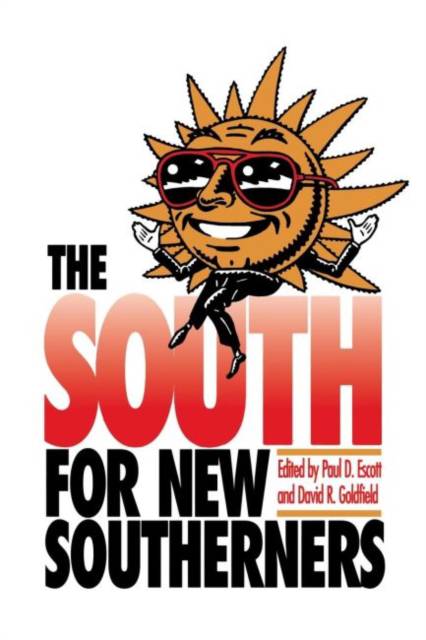
- Retrait gratuit dans votre magasin Club
- 7.000.000 titres dans notre catalogue
- Payer en toute sécurité
- Toujours un magasin près de chez vous
- Retrait gratuit dans votre magasin Club
- 7.000.0000 titres dans notre catalogue
- Payer en toute sécurité
- Toujours un magasin près de chez vous
Description
The South often seems like a foreign country to newcomers from other parts of the United States. And for people from other countries, Southern customs and lifestyle can be even more bewildering. For anyone who has ever wondered why the style of conducting busines in the South is different or why some Southerners are still fighting the Civil War, this book will be a valuable guide. The informative and entertaining essays will help new Southerners understand and appreciate the region and its people, and they will also serve as a refresher course on the South for those who are comfortably settled in.
Each of the essays adopts a different perspective to suggest just how the South is different from other American regions. In turn, they examine the special meaning of history for Southerners, the boundaries of the South as a geographical and as an imaginary region, the rhetoric and the reality of Southern race relations, the South's change from a rural to a metropolitan culture, the myth of the Southern belle and the reality of Southern women's lives, the political metamorphosis that turned the Solid South into the Solid Republican South, and the recent transformation of the poorest region in the country into an economic wonder called the Sunbelt.
Readers will learn that when Southerners ask strangers what church they attend, the intent is not to pry but to be friendly. They will also discover that "where the kudzu grows" is one of the best ways to define where the South is located.
The essays offer the insights of both shcolarship and experience, for the contributors -- most of them originally non-Southerners -- learned about this region by living in it as well as studying it.
The contributors are Julia Kirk Blackwelder, Paul D. Escott, David R. Goldfield, Nell Irvin Painter, John Shelton Reed, and Thomas E. Terrill.
Each of the essays adopts a different perspective to suggest just how the South is different from other American regions. In turn, they examine the special meaning of history for Southerners, the boundaries of the South as a geographical and as an imaginary region, the rhetoric and the reality of Southern race relations, the South's change from a rural to a metropolitan culture, the myth of the Southern belle and the reality of Southern women's lives, the political metamorphosis that turned the Solid South into the Solid Republican South, and the recent transformation of the poorest region in the country into an economic wonder called the Sunbelt.
Readers will learn that when Southerners ask strangers what church they attend, the intent is not to pry but to be friendly. They will also discover that "where the kudzu grows" is one of the best ways to define where the South is located.
The essays offer the insights of both shcolarship and experience, for the contributors -- most of them originally non-Southerners -- learned about this region by living in it as well as studying it.
The contributors are Julia Kirk Blackwelder, Paul D. Escott, David R. Goldfield, Nell Irvin Painter, John Shelton Reed, and Thomas E. Terrill.
Spécifications
Parties prenantes
- Editeur:
Contenu
- Nombre de pages :
- 179
- Langue:
- Anglais
- Collection :
Caractéristiques
- EAN:
- 9780807842935
- Date de parution :
- 23-04-91
- Format:
- Livre broché
- Format numérique:
- Trade paperback (VS)
- Dimensions :
- 147 mm x 227 mm
- Poids :
- 276 g

Les avis
Nous publions uniquement les avis qui respectent les conditions requises. Consultez nos conditions pour les avis.





